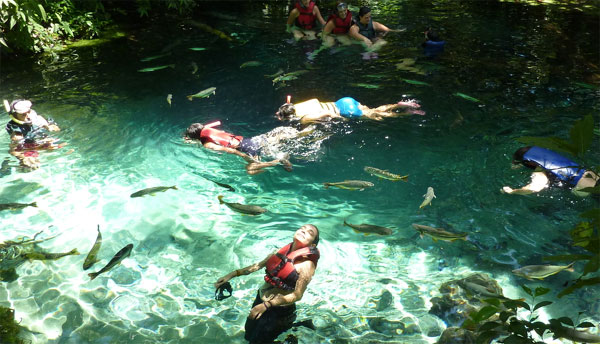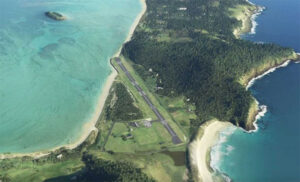
If the word “ecotourism” is used in the word “ecology”, it is not wrong to say that there is a situation in which some people find themselves in a state of disbelief, as well as discomfort. In recent times, environmental activities have become very popular, but some environmentalists are strongly opposed to this. These protests are not purely irrational, but they are a phenomenon that arose on the basis of those based on scientific studies.
For example, the Journal of the Trends in Ecology and Evolution, done by Professor Daniel Blumstein, a team of University of California calculators at the University of Los Angeles in the United States, The study showed that ecological tourism contributes to the changing behavior of wild animals. In his study, he pointed out that the confusion caused by the confinement of the jungle to the wild and the change in food patterns, the risk of life being put at risk to human beings, the ease of access to hunters, the loss of habitat.
There are also a number of studies that show that this type of study is productive and effective. That’s when one group says this is bad, another group says that this is OK. Philip W. Bateman of the Curtin University in Australia has made a very important study for this problem. The study of the negative effects of tourist activities on wildlife over the reported study shows that we are still quick to come to the conclusion that the environmental tourism industry is good or bad. He also points out that it is appropriate to eradicate this method under good conditions and to reduce badly there and then to reduce it badly. His study has been published in the journal Biological Conservation. Indeed, today we need such an interlocutory approach, not eco-tourism, which is the best concept of the world, or the harmful concept of the world, not extremist ideologies.
Journalist Brenna Swanston, who wrote the Positive & Negative Effects of Ecotourism to the USA Tooday magazine, points out that environmental tourism is a matter that needs to be addressed, rather than stopping it. She pointed out that the reason for these disadvantages is not a fault in the concept of environmental tourism and is implemented in an effective manner. However, she points out that we should not underestimate the studies highlighting the disadvantages of the eco-tourism industry.
Such studies help us to make mistakes and advance. Hence, there are several comparable studies of such important studies.
The first of these was Laetitia Marechal, a prognostic of the Effects of Tourist Provisioning on the Health of Wild Barbary Macques in Morocco by the Department of Life Sciences, Lahore’s University of London in 2016. The information on this study was published in PLOS ONE. It was asked about the effect it produces on a Mackey on food. Problems were arising, such as stressing on these monkeys, in addition to becoming stressed over obesity. These are short-term issues. It is customary to assume that the long-term feeding of monkeys is a source of eagerness to eat. But this study did not confirm this. However, this study does not give the conclusion that feeding to the animal should be stopped. They pointed out that these foods should not be used to feed animals to nearby animals.
Ecotourism and the development of indigenous communities: A study by Dr. Jessica Coria of the University of Gothenburg, Sweden and E. Calfucura of the Diego Portales University in Chile on the subject of the good, bad and the ugly. It points out that the goals of the ecological tourism industry are good, but they do not fulfill certain technical constraints. The Ecological Economics study focuses on the ecology of green tourism. They point out that such projects do not bring about huge economic benefits to communities in the area, but this does not happen.
Enchanting helps protect the threatened animals
This was also related to the study published in the PLOS ONE, published by Ralf C. Buckley of the University of Grenfone in Australia, E Effects of Ecotourism on Threatened Species Survival. In the study, the attitudes of animals such as Ounutant, Hoolock gibbon, Lion tamarin, Cheetah, African forest beetle, New Zealand’s Lion, Mackerel, Egyptian Helium, African Penguin, Bison, Hippopotamus, Western Guerilla and Probocis Monkey were considered . The total number of threatened species is 133. s. Of these, 64 were ecological tourism. Therefore, many institutions have been interested in conserving these animals (both state and private related to the environmental tourism industry). Researchers conclude that they are animals
Enchanting helps protect the threatened animals
This was also related to the study published in the PLOS ONE, published by Ralf C. Buckley of the University of Grenfone in Australia, E Effects of Ecotourism on Threatened Species Survival. In the study, the attitudes of animals such as Ounutant, Hoolock gibbon, Lion tamarin, Cheetah, African forest beetle, New Zealand’s Lion, Mackerel, Egyptian Helium, African Penguin, Bison, Hippopotamus, Western Guerilla and Probocis Monkey were considered . The total number of threatened species is 133. s. Of these, 64 were ecological tourism. Therefore, many institutions have been interested in conserving these animals (both state and private related to the environmental tourism industry). Researchers conclude that there are disadvantages such as disruptions to animal behavior, but environmental tourism has had positive effects on conservation of animals. This included awareness-raising, hunting bans, community-based and institutional fronts against hunters.
Awareness of the ecological tourism industry is essential to protect the environment and life
The Study of the Ecotourism as a Learning Tool for Sustainable Development, published in late 2018, suggests that environmental tourism is a very productive activity. The study of Journal of Ecotourism was done by Elena Mondino and Thomas Beery. There they selected the Monviso Biosphere Reserve, an acclaimed tourist center in Italy. A large number of questionnaires were also provided to help protect the environment. It showed that the majority of people believed that environmental awareness was being provided to the environment.
Environmental tourism industry is at risk of animal death
Environmental tourism is simply a life-threatening process, according to Trends in Ecology & Evolution, a study by How Nature Based Tourism migh Increase Prey Vulnerabity to Predators. This study was carried out by Benjamin Geoffrey and many others from the Montpellier University in France. The study points out that the fear of the predators is caused by the environmental tourism industry and is risking the life of each animal in general.
This is a fine example to Fox Squirrels. These animals were naturally afraid of their predators. This species of North America is confined to certain special forests. The eclipse of the species has been reduced due to environmental reasons. Changes in Fox Squirelll anti predator behaviors in the urban-rural geadient study by Robet A. Mccleery suggests that the fears of these predators have changed drastically in the recent past.
Based on my own studies, The Conservation Magazine Ecotourism makes life less scared, easier to eat article Daniel Blumstein, a professor of evolutionary biology at the California State University, says the increase in tourist traffic in the forests will increase the number of animals (the predators). In addition, the increase in the number of vehicles entering the jungle and the voices and smoke emanating from the forest cause problems for the animals.
The witch hunt drops
According to some studies, the environmental tourism has caused an increase in the hunting and hunting of animals, but the study of Ecotourism reduses illegal hunting and trade of wildlife in Lao in late 2018 shows that this is not the case. The study points out that the ecological tourism industry is releasing non-legal animal species. This study was published in the PLOS ONE journal. The study, led by Wildlife Conservation Sociatyys Paul Frederick, focused on how ecotourism can affect the environment of animals in La Nava National Park. The researchers reviewed the ecological activities carried out during the siege for four years. It showed that Ecotouism was responsible for the life (threatening) of the deer, like deer, deer, barking deer, as well as small primates during that time. Researchers say that this does not happen. Those who conducted environmental campaigns have explained that the income earned by the tourism industry too has been explained. They have made direct payments as promised. Hence, hunting and other harmful activities are not directly and indirectly avoided.






